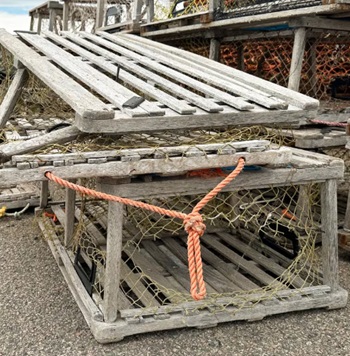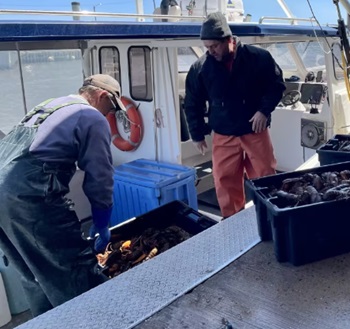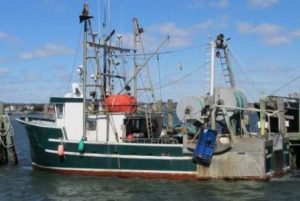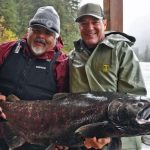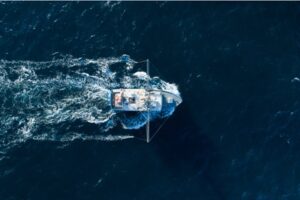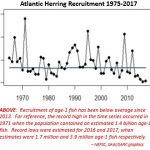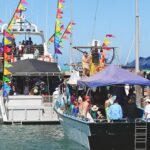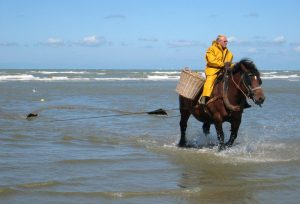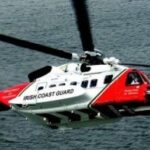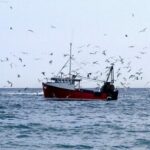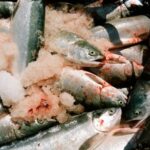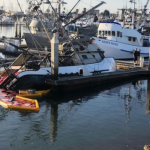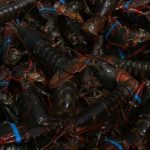Tag Archives: Department of Fisheries and Oceans
Icewater Seafoods processes northern cod for the first time in 32 years
 For over three decades, Icewater Seafood’s Arnolds Cove fish plant has kept itself going processing fish from other countries. But on Feb 24, 2025, the plant processed its first N.L. offshore cod since the moratorium in 1992. Plant workers were thrilled this week to be processing local cod. Not only did it mean they get to work with fresher and higher quality fish, but it means more money will be coming their way. Janet Hynes has been at the plant for 38 years and remembers the day operations shut down due to the moratorium. “We were devastated,” said Hynes. “We didn’t really know what was going to happen at that time.” Over the past 32 years, quality control coordinator Brenda Hickey, said she never gave up hope. “I was thinking this is going to come back … and it did. We’re super excited,” she said. more, >>CLICK TO READ<< 09:41
For over three decades, Icewater Seafood’s Arnolds Cove fish plant has kept itself going processing fish from other countries. But on Feb 24, 2025, the plant processed its first N.L. offshore cod since the moratorium in 1992. Plant workers were thrilled this week to be processing local cod. Not only did it mean they get to work with fresher and higher quality fish, but it means more money will be coming their way. Janet Hynes has been at the plant for 38 years and remembers the day operations shut down due to the moratorium. “We were devastated,” said Hynes. “We didn’t really know what was going to happen at that time.” Over the past 32 years, quality control coordinator Brenda Hickey, said she never gave up hope. “I was thinking this is going to come back … and it did. We’re super excited,” she said. more, >>CLICK TO READ<< 09:41
RESULTS OF LATEST SNOW CRAB ASSESSMENT
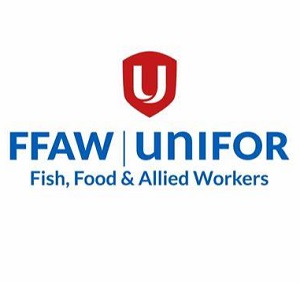 Today, the Department of Fisheries and Oceans (DFO) released the latest stock assessment update for Newfoundland and Labrador’s snow crab fishery, reporting differences in stock health among regions. Attending on behalf of FFAW- Unifor were Fisheries Scientist, Dr. Erin Carruthers, with harvesters Nelson Bussey and Chad Waterman (3LNO), Scott Spurvey (3Ps), Eldred Woodford (3K), as well as Alton Rumbolt who participated online (2J).Nelson Bussey highlighted the good news for 3LNO noting that, “Biomass levels are at the highest levels seen in decades, likely, in part, because we have maintained reasonable exploitation levels. There appears to be scope for growth, which is welcome news for the fleets in our areas.” more, >>CLICK To READ<< 10:01
Today, the Department of Fisheries and Oceans (DFO) released the latest stock assessment update for Newfoundland and Labrador’s snow crab fishery, reporting differences in stock health among regions. Attending on behalf of FFAW- Unifor were Fisheries Scientist, Dr. Erin Carruthers, with harvesters Nelson Bussey and Chad Waterman (3LNO), Scott Spurvey (3Ps), Eldred Woodford (3K), as well as Alton Rumbolt who participated online (2J).Nelson Bussey highlighted the good news for 3LNO noting that, “Biomass levels are at the highest levels seen in decades, likely, in part, because we have maintained reasonable exploitation levels. There appears to be scope for growth, which is welcome news for the fleets in our areas.” more, >>CLICK To READ<< 10:01
FAW-UNIFOR CALLS FOR MP INTERVENTION TO HALT DFO’s INFLEXIBLE E-LOG IMPLEMENTATION
 FFAW-Unifor is urging Members of Parliament to intervene following the Department of Fisheries and Oceans’ (DFO) rejection of their proposed electronic logbook (ELOG) implementation plan. The union’s proposal aimed to address critical concerns raised by harvesters and facilitate a smoother transition to ELOGs. FFAW-Unifor President Dwan Street expressed strong disapproval of DFO’s decision, stating, “DFO’s inflexibility in mandating ELOGs without addressing accessibility issues, technology concerns, and cost implications places an undue burden on our harvesters. We call on our MPs to step in and halt this misguided implementation that threatens the livelihoods of our fishing communities”. more, >>CLICK TO READ<< 14:37
FFAW-Unifor is urging Members of Parliament to intervene following the Department of Fisheries and Oceans’ (DFO) rejection of their proposed electronic logbook (ELOG) implementation plan. The union’s proposal aimed to address critical concerns raised by harvesters and facilitate a smoother transition to ELOGs. FFAW-Unifor President Dwan Street expressed strong disapproval of DFO’s decision, stating, “DFO’s inflexibility in mandating ELOGs without addressing accessibility issues, technology concerns, and cost implications places an undue burden on our harvesters. We call on our MPs to step in and halt this misguided implementation that threatens the livelihoods of our fishing communities”. more, >>CLICK TO READ<< 14:37
Another battle over lucrative juvenile eel fishery lands in court
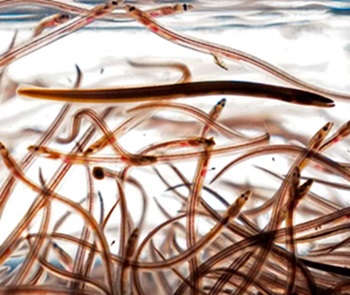 A group of companies with licences to fish for highly lucrative juvenile eels along Maritime rivers turned once again to the courts on Friday in their bitter dispute with the federal Department of Fisheries and Oceans over decisions it has made in the fishery. The latest case deals with the department’s unwillingness to raise the total allowable catch in the elver fishery from 9,960 kilograms, a figure that has remained unchanged for two decades and which licence holders argue can be increased. A lawyer for the attorney general of Canada and a lawyer for the group that represents a number of licence holders made their arguments Friday in Federal Court. The judge in the case said he will issue a decision soon. more, >>CLICK TO READ<< 07:02
A group of companies with licences to fish for highly lucrative juvenile eels along Maritime rivers turned once again to the courts on Friday in their bitter dispute with the federal Department of Fisheries and Oceans over decisions it has made in the fishery. The latest case deals with the department’s unwillingness to raise the total allowable catch in the elver fishery from 9,960 kilograms, a figure that has remained unchanged for two decades and which licence holders argue can be increased. A lawyer for the attorney general of Canada and a lawyer for the group that represents a number of licence holders made their arguments Friday in Federal Court. The judge in the case said he will issue a decision soon. more, >>CLICK TO READ<< 07:02
Indigenous fishers, co-operatives are winners in Ottawa’s shuffle of baby eel quotas
 Ottawa has issued the latest version of how it is proposing to distribute licences for the lucrative baby eel fishery in the Maritimes. In a letter to stakeholders on Monday, the Fisheries Department says it is maintaining its plan to shift half the quota of close to 10,000 kilograms of elvers away from nine large licence holders to new entrants from Indigenous communities. However, Ottawa confirms it is backing away from a pilot project to redistribute 27 per cent of the catch of the nine licence holders to 120 fishers who used to work for them. That old pilot proposal, introduced in December, drew strong criticism from the potential recipients, who said they preferred to remain employees and felt safer on the rivers under the existing arrangement. more, >>CLICK TO READ<< 15:33
Ottawa has issued the latest version of how it is proposing to distribute licences for the lucrative baby eel fishery in the Maritimes. In a letter to stakeholders on Monday, the Fisheries Department says it is maintaining its plan to shift half the quota of close to 10,000 kilograms of elvers away from nine large licence holders to new entrants from Indigenous communities. However, Ottawa confirms it is backing away from a pilot project to redistribute 27 per cent of the catch of the nine licence holders to 120 fishers who used to work for them. That old pilot proposal, introduced in December, drew strong criticism from the potential recipients, who said they preferred to remain employees and felt safer on the rivers under the existing arrangement. more, >>CLICK TO READ<< 15:33
Increasing Jonah crab numbers a problem for lobster fishermen in parts of Nova Scotia
 A burgeoning Jonah crab population is proving a challenge for some Nova Scotia lobster fishermen. Dan Fleck, executive director of the Brazil Rock 33/34 Lobster Association, says the crabs are having a significant impact on the lobster catch in certain areas, particularly in lobster fishing area 34, which stretches from Yarmouth to the Bay of Fundy. He said fishermen in some areas are reporting a drop of 20 to 25 per cent in their lobster catches. Jonah crabs are a valuable bycatch in lobster fishing area 34 and can be kept for use as bait or for sale if they measure at least 130 millimetres, Fleck said. more, >>CLICK TO READ<< 07:14
A burgeoning Jonah crab population is proving a challenge for some Nova Scotia lobster fishermen. Dan Fleck, executive director of the Brazil Rock 33/34 Lobster Association, says the crabs are having a significant impact on the lobster catch in certain areas, particularly in lobster fishing area 34, which stretches from Yarmouth to the Bay of Fundy. He said fishermen in some areas are reporting a drop of 20 to 25 per cent in their lobster catches. Jonah crabs are a valuable bycatch in lobster fishing area 34 and can be kept for use as bait or for sale if they measure at least 130 millimetres, Fleck said. more, >>CLICK TO READ<< 07:14
Ottawa scraps elver fishery quota redistribution plan after backlash
 The federal government is no longer moving forward with its plan to redistribute the wealth of Nova Scotia’s baby eel harvest from large licence holders to individual fishers after receiving backlash from the industry. A statement from Fisheries Minister Diane Lebouthillier’s office said the minister reached the decision after listening to feedback from stakeholders in consultations held by the Department of Fisheries and Oceans (DFO) in recent weeks. A subsequent letter from the DFO in December to fishers detailing the planned redistribution said the nine commercial licensees that dominate the fishery would lose between 60 per cent and 90 per cent of their quotas, without compensation from the federal government. Video, more, >>CLICK TO READ<< 16:45
The federal government is no longer moving forward with its plan to redistribute the wealth of Nova Scotia’s baby eel harvest from large licence holders to individual fishers after receiving backlash from the industry. A statement from Fisheries Minister Diane Lebouthillier’s office said the minister reached the decision after listening to feedback from stakeholders in consultations held by the Department of Fisheries and Oceans (DFO) in recent weeks. A subsequent letter from the DFO in December to fishers detailing the planned redistribution said the nine commercial licensees that dominate the fishery would lose between 60 per cent and 90 per cent of their quotas, without compensation from the federal government. Video, more, >>CLICK TO READ<< 16:45
Industry withholding data on one of Canada’s largest fisheries, advocates say
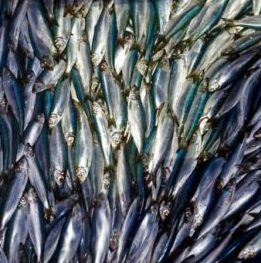 Advocates and scientists are raising concerns with the availability of data on one of Canada’s largest fisheries, as the Department of Fisheries and Oceans DFO is waiting on industry to provide data on the herring fishery in southwest Nova Scotia and the Bay of Fundy. For decades, herring stock has been declining and has been in the critical zone since 2018. In July, DFO reduced the total allowable catch to 16,000 tonnes per season, from 21,000, fixing the quota at the reduced level until 2027. Since then, advocates say the Herring Science Council — an industry body that, through an agreement with DFO, gathers the data that’s the only source of scientific information on the fishery — has not provided to the department the information it has collected. more, >>CLICK TO READ<< 08:12
Advocates and scientists are raising concerns with the availability of data on one of Canada’s largest fisheries, as the Department of Fisheries and Oceans DFO is waiting on industry to provide data on the herring fishery in southwest Nova Scotia and the Bay of Fundy. For decades, herring stock has been declining and has been in the critical zone since 2018. In July, DFO reduced the total allowable catch to 16,000 tonnes per season, from 21,000, fixing the quota at the reduced level until 2027. Since then, advocates say the Herring Science Council — an industry body that, through an agreement with DFO, gathers the data that’s the only source of scientific information on the fishery — has not provided to the department the information it has collected. more, >>CLICK TO READ<< 08:12
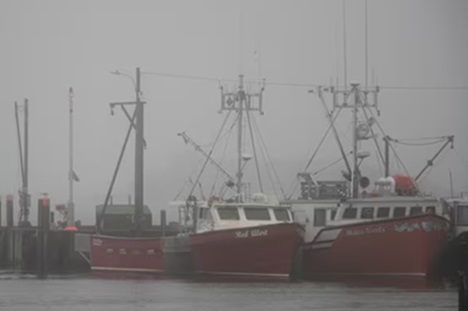
Disabled lobster licence holder wins again against DFO in court
The Federal Court has once again faulted the Department of Fisheries and Oceans for how it has handled the cases of disabled lobster licence holders who sought lengthy exemptions from federal rules that require them to be on board the boat when it is fishing. In a pair of decisions this week, Justice Richard Southcott ruled the deputy minister didn’t properly take into account whether two Nova Scotia fishermen would be discriminated against when the department indicated it would stop allowing substitutes to fill in for them. Federal provisions allow a licence holder with a medical condition to be replaced by a substitute on board, but only for five years. Once that time was up, Robinson was told he could no longer use a stand-in. more, >>CLICK TO READ<< 16:38
Gear tampering becoming more frequent in Gulf region, says DFO — and that means more ghost gear
 Gear tampering in the Gulf of St. Lawrence region off P.E.I. is more common than it used to be, according to the Department of Fisheries and Oceans, and the environmental cost can be high. “Gear tampering is any action that interferes or disrupts a legal fishery,” said Matthew MacEwen, the detachment supervisor in Charlottetown for Conservation Protection with Fisheries and Oceans Canada. “Examples of this could be tampering with traps, nets or lines… causing damage to that fishing gear that renders them incapable of doing their job fishing.” MacEwen said it could include cutting the ropes off traps, making them unretrievable, or bringing traps up from the waters and destroying the webbing and mesh that keep lobsters inside once they enter the traps. Video, photos, more, >>CLICK TO READ<< 06:26
Gear tampering in the Gulf of St. Lawrence region off P.E.I. is more common than it used to be, according to the Department of Fisheries and Oceans, and the environmental cost can be high. “Gear tampering is any action that interferes or disrupts a legal fishery,” said Matthew MacEwen, the detachment supervisor in Charlottetown for Conservation Protection with Fisheries and Oceans Canada. “Examples of this could be tampering with traps, nets or lines… causing damage to that fishing gear that renders them incapable of doing their job fishing.” MacEwen said it could include cutting the ropes off traps, making them unretrievable, or bringing traps up from the waters and destroying the webbing and mesh that keep lobsters inside once they enter the traps. Video, photos, more, >>CLICK TO READ<< 06:26
DFO to increase year-round lobster gear monitoring in Bay of Fundy
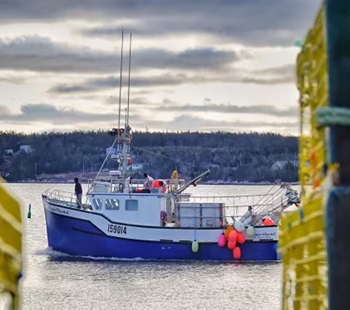 Enforcement officers with the federal Department of Fisheries and Oceans will soon have a new tool to lift, check and seize illegal lobster fishing gear from the waters between Nova Scotia and New Brunswick. The department is seeking a crew and vessel that would be contracted to take DFO officers on patrols to inspect fishing equipment. The patrol work isn’t new, but this contract represents an increase in surveillance and enforcement in an area where the fishing industry has called on officers to do more to deter illegal fishing operations. The contracted vessel would be responsible for patrolling throughout the Bay of Fundy and “be able to berth at various ports in New Brunswick and Nova Scotia,” according to the documents published online. more, >>CLICK TO READ<< 07:33
Enforcement officers with the federal Department of Fisheries and Oceans will soon have a new tool to lift, check and seize illegal lobster fishing gear from the waters between Nova Scotia and New Brunswick. The department is seeking a crew and vessel that would be contracted to take DFO officers on patrols to inspect fishing equipment. The patrol work isn’t new, but this contract represents an increase in surveillance and enforcement in an area where the fishing industry has called on officers to do more to deter illegal fishing operations. The contracted vessel would be responsible for patrolling throughout the Bay of Fundy and “be able to berth at various ports in New Brunswick and Nova Scotia,” according to the documents published online. more, >>CLICK TO READ<< 07:33
DFO poised to shake up fishery for tiny eels in ‘devastating’ blow to licence holders
 The federal Department of Fisheries and Oceans is poised to impose a major shakeup on the lucrative but problem-plagued Maritime fishery for juvenile eels, stripping most commercial operations of nearly all their quota and handing it to individual fishermen and First Nations. In a letter Thursday, the department proposes that six licence holders, many of which pioneered the industry and slogged through years of low prices before the recent boom, will lose 80 to 90 per cent of the quota they fished before 2022. The remaining three will see cuts of about 60 per cent. “The minister and DFO has taken this fishery, which has provided great-paying jobs and community support for decades, and they’ve basically destroyed it,” said Stanley King, whose company Atlantic Elver Fishery Ltd. will lose 81 per cent of its quota. more, >>CLICK TO READ<< 17:57
The federal Department of Fisheries and Oceans is poised to impose a major shakeup on the lucrative but problem-plagued Maritime fishery for juvenile eels, stripping most commercial operations of nearly all their quota and handing it to individual fishermen and First Nations. In a letter Thursday, the department proposes that six licence holders, many of which pioneered the industry and slogged through years of low prices before the recent boom, will lose 80 to 90 per cent of the quota they fished before 2022. The remaining three will see cuts of about 60 per cent. “The minister and DFO has taken this fishery, which has provided great-paying jobs and community support for decades, and they’ve basically destroyed it,” said Stanley King, whose company Atlantic Elver Fishery Ltd. will lose 81 per cent of its quota. more, >>CLICK TO READ<< 17:57
Climate change makes winners and losers out of cod and snow crab, says scientist
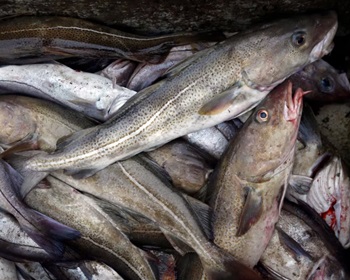 A team of scientists used modelling to look into the effects of climate change on three Grand Banks fish species. They anticipate that warmer waters could lead to biomass declines for snow crab and yellowtail flounder but gains for Atlantic cod. “That’s one thing that we see when we’re looking at the impacts of climate change on marine ecosystems and oceans, is that there are winners and losers. So it’s not as though everything is going to be negatively impacted,” said Tyler Eddy, a scientist with Marine Institute’s Centre for Fisheries Ecosystems Research. Species that thrive or struggle in these scenarios will depend on their thermal preferences and changes in a region, he said, adding a specific species might also leave a region to follow their preferred temperature. more, >>CLICK TO READ<< 10:06
A team of scientists used modelling to look into the effects of climate change on three Grand Banks fish species. They anticipate that warmer waters could lead to biomass declines for snow crab and yellowtail flounder but gains for Atlantic cod. “That’s one thing that we see when we’re looking at the impacts of climate change on marine ecosystems and oceans, is that there are winners and losers. So it’s not as though everything is going to be negatively impacted,” said Tyler Eddy, a scientist with Marine Institute’s Centre for Fisheries Ecosystems Research. Species that thrive or struggle in these scenarios will depend on their thermal preferences and changes in a region, he said, adding a specific species might also leave a region to follow their preferred temperature. more, >>CLICK TO READ<< 10:06
Nova Scotia Lobster Season Faces Wind Delays Again
 Weather conditions push back the much-anticipated opening day for the region’s commercial lobster fishery Strong winds have once again delayed the opening of the commercial lobster season along the south shore of Nova Scotia. Scheduled to commence on Monday, November 25, the season’s launch has been postponed due to weather conditions not cooperating with the fishermen’s plans. The forecast continues to show gale force winds, prompting industry officials to eye Tuesday, November 26, as the likely new opening day. This pattern of weather-related delays is nothing new for lobster fishers who have seen the impact of harsh conditions on their opening days for years. The season is set by regulation to start on the last Monday of November, but as was the case this year, it frequently doesn’t go according to plan. more, >>CLICK TO READ<< 06:56
Weather conditions push back the much-anticipated opening day for the region’s commercial lobster fishery Strong winds have once again delayed the opening of the commercial lobster season along the south shore of Nova Scotia. Scheduled to commence on Monday, November 25, the season’s launch has been postponed due to weather conditions not cooperating with the fishermen’s plans. The forecast continues to show gale force winds, prompting industry officials to eye Tuesday, November 26, as the likely new opening day. This pattern of weather-related delays is nothing new for lobster fishers who have seen the impact of harsh conditions on their opening days for years. The season is set by regulation to start on the last Monday of November, but as was the case this year, it frequently doesn’t go according to plan. more, >>CLICK TO READ<< 06:56
Dumping Day won’t be Monday in LFA 33/34
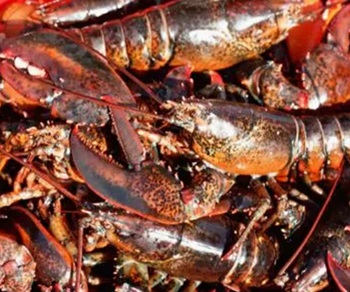 Dumping Day is delayed once again. It’s the day that hundreds of lobster fishing vessels head out to set their traps, marking the start of the commercial lobster fishery. Port representatives from Lobster Fishing Area 34, which includes Digby around Yarmouth to Shelburne County, and the Department of Fisheries and Oceans held a weather call Saturday morning to look at a potential opening for Monday. Due to high winds, the decision was a ‘no go’. more, >>CLICK TO READ<<08:46
Dumping Day is delayed once again. It’s the day that hundreds of lobster fishing vessels head out to set their traps, marking the start of the commercial lobster fishery. Port representatives from Lobster Fishing Area 34, which includes Digby around Yarmouth to Shelburne County, and the Department of Fisheries and Oceans held a weather call Saturday morning to look at a potential opening for Monday. Due to high winds, the decision was a ‘no go’. more, >>CLICK TO READ<<08:46
Fishermen greet DFO baby eel licence plan with uncertainty
 The department is offering 120 fishermen currently employed by the eight commercial groups their own small licences for next year’s season, in what the letters say is a bid to “broaden the distribution of benefits” of the fishery. It is also offering elver licences to 30 fishermen currently licensed to catch adult eels. Austin Townsend, a 26-year-old elver fisherman from Lockeport, N.S., said while the proposal looks good for him on paper, he’s suspicious of the “Robin Hood” tactic where quota is simply plucked from the commercial groups, and worries he could be worse off financially. He said in a good season, he will make between $40,000 and $90,000 working for Shelburne Elver, which has the equipment to hold elvers and the networks to export them. But Townsend said if he goes it alone, he will still likely have to sell to a middleman who will take a cut. Photos, more, >>CLICK TO READ<< 14:23
The department is offering 120 fishermen currently employed by the eight commercial groups their own small licences for next year’s season, in what the letters say is a bid to “broaden the distribution of benefits” of the fishery. It is also offering elver licences to 30 fishermen currently licensed to catch adult eels. Austin Townsend, a 26-year-old elver fisherman from Lockeport, N.S., said while the proposal looks good for him on paper, he’s suspicious of the “Robin Hood” tactic where quota is simply plucked from the commercial groups, and worries he could be worse off financially. He said in a good season, he will make between $40,000 and $90,000 working for Shelburne Elver, which has the equipment to hold elvers and the networks to export them. But Townsend said if he goes it alone, he will still likely have to sell to a middleman who will take a cut. Photos, more, >>CLICK TO READ<< 14:23
$100K worth of lobster seized from southwest N.S. facility, 1 Arrested
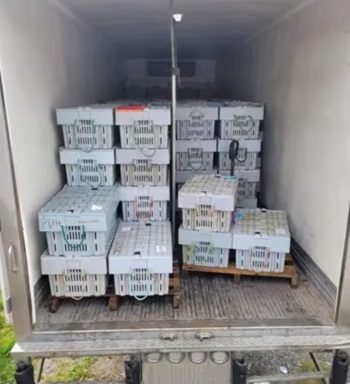 Federal fisheries officers have seized more than 5,900 kilograms of lobster as well as documents and electronic records during the search of a facility in Shelburne County, N.S. One person has been arrested and is being investigated for potential charges under the Fisheries Act in connection with maintaining a lobster pound without the required licence, according to the Department of Fisheries and Oceans. Social media posts from the federal department said officers obtained a search warrant for the operation that happened on Wednesday. DFO said in its posts that “fishery officers have been taking enforcement measures ranging from compliance awareness to making arrests and seizing unauthorized catch, equipment and vessels.” more, >>CLICK TO READ<< 13:28
Federal fisheries officers have seized more than 5,900 kilograms of lobster as well as documents and electronic records during the search of a facility in Shelburne County, N.S. One person has been arrested and is being investigated for potential charges under the Fisheries Act in connection with maintaining a lobster pound without the required licence, according to the Department of Fisheries and Oceans. Social media posts from the federal department said officers obtained a search warrant for the operation that happened on Wednesday. DFO said in its posts that “fishery officers have been taking enforcement measures ranging from compliance awareness to making arrests and seizing unauthorized catch, equipment and vessels.” more, >>CLICK TO READ<< 13:28
Editorial: Ottawa must answer the bell on lobster poaching
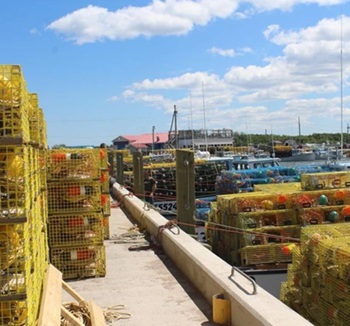 The federal government must do more to address complaints about out-of-season fishing and lobster poaching in the Bay of Fundy – issues that have come to public attention in the last couple of weeks as fishing operators in New Brunswick and Nova Scotia plead for better enforcement. Clearly something is amiss when you have local business owners threatening to take matters into their own hands by pulling up illegal gear – an action that may spark confrontations on the water or at wharves along the Fundy coast. The Nova Scotia fisheries minister has lent further credence by writing to his federal counterpart, warning of an underground fishery and reports of threats and intimidation for speaking out. more, >>CLICK TO READ<< 15:18
The federal government must do more to address complaints about out-of-season fishing and lobster poaching in the Bay of Fundy – issues that have come to public attention in the last couple of weeks as fishing operators in New Brunswick and Nova Scotia plead for better enforcement. Clearly something is amiss when you have local business owners threatening to take matters into their own hands by pulling up illegal gear – an action that may spark confrontations on the water or at wharves along the Fundy coast. The Nova Scotia fisheries minister has lent further credence by writing to his federal counterpart, warning of an underground fishery and reports of threats and intimidation for speaking out. more, >>CLICK TO READ<< 15:18
25 years after the Marshall Decision, some say more must be done to uphold treaty rights
 On the 25th anniversary of the Marshall Decision, a landmark court ruling that affirmed First Nations’ treaty right to fish, hunt and gather in pursuit of a moderate livelihood, some say there’s still a long way to go to properly uphold it. The Supreme Court ruling involved Donald Marshall Jr., a Mi’kmaw man from Membertou, N.S., who was arrested and charged with selling eels without a licence outside the Department of Fisheries and Oceans (DFO) regulated season in August 1993. On Sept. 17, 1999, the court ruled that Marshall was justified in doing so in pursuit of a moderate livelihood, under the Peace and Friendship Treaties signed in the 1700s. What became known as the Marshall Decision affected about three dozen Mi’kmaq and Wolastoqiyik First Nations in the Maritimes and the Gaspé region of Quebec. But the court did not clearly define “moderate livelihood,” even in a subsequent clarification. In the decades since, this has contributed to tensions between First Nations fishers, the commercial industry and DFO. more, >>CLICK TO READ<< 09:09
On the 25th anniversary of the Marshall Decision, a landmark court ruling that affirmed First Nations’ treaty right to fish, hunt and gather in pursuit of a moderate livelihood, some say there’s still a long way to go to properly uphold it. The Supreme Court ruling involved Donald Marshall Jr., a Mi’kmaw man from Membertou, N.S., who was arrested and charged with selling eels without a licence outside the Department of Fisheries and Oceans (DFO) regulated season in August 1993. On Sept. 17, 1999, the court ruled that Marshall was justified in doing so in pursuit of a moderate livelihood, under the Peace and Friendship Treaties signed in the 1700s. What became known as the Marshall Decision affected about three dozen Mi’kmaq and Wolastoqiyik First Nations in the Maritimes and the Gaspé region of Quebec. But the court did not clearly define “moderate livelihood,” even in a subsequent clarification. In the decades since, this has contributed to tensions between First Nations fishers, the commercial industry and DFO. more, >>CLICK TO READ<< 09:09
Lebouthillier Ignored Scientific Advice on Reopening Cod Fishery
 Federal Fisheries Minister Diane Lebouthillier faced criticism for disregarding advice from the Department of Fisheries and Oceans (DFO) when she reopened the commercial cod fishery off Newfoundland and Labrador earlier this year, a decision largely influenced by political considerations. Patrick Butler of Radio Canada reports that a DFO briefing note from 09 May 2024 uncovered by reveals that the department recommended maintaining the longstanding moratorium on northern cod, citing scientific evidence of the stock’s vulnerability. However, political advisors within the minister’s office advocated for reopening the fishery and increasing cod quotas, viewing it as a “political victory.” Senior policy advisor Paul Carrigan expressed concerns from DFO staff about the risk of stock decline due to higher quotas and the return of offshore vessels. The department had recommended keeping the total allowable catch at 13,000 tonnes, the same level as in 2022 and 2023, while maintaining a limited stewardship fishery solely for inshore harvesters. more, >>CLICK TO READ<< 12:05
Federal Fisheries Minister Diane Lebouthillier faced criticism for disregarding advice from the Department of Fisheries and Oceans (DFO) when she reopened the commercial cod fishery off Newfoundland and Labrador earlier this year, a decision largely influenced by political considerations. Patrick Butler of Radio Canada reports that a DFO briefing note from 09 May 2024 uncovered by reveals that the department recommended maintaining the longstanding moratorium on northern cod, citing scientific evidence of the stock’s vulnerability. However, political advisors within the minister’s office advocated for reopening the fishery and increasing cod quotas, viewing it as a “political victory.” Senior policy advisor Paul Carrigan expressed concerns from DFO staff about the risk of stock decline due to higher quotas and the return of offshore vessels. The department had recommended keeping the total allowable catch at 13,000 tonnes, the same level as in 2022 and 2023, while maintaining a limited stewardship fishery solely for inshore harvesters. more, >>CLICK TO READ<< 12:05
N.S. swordfish harpoon fleet urged to bring tourists aboard to boost troubled sector
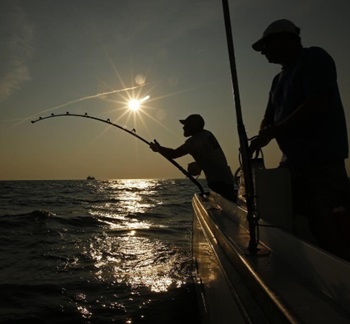 An environmental group says Nova Scotia’s commercial swordfish fleet could generate millions in added revenue by bringing tourists along for fishing trips and using different gear. The Ecology Action Centre says swordfish harpooning — lunging a long spear into the water to catch a fish — has become increasingly difficult and less economically viable because swordfish are appearing less often at the surface due to changing water conditions. In a report released Wednesday, the centre says changing ocean conditions are preventing fishers who use the traditional fishing method from fulfilling their already small swordfish quotas. The group’s solution is for the harpoon fleet to start using a single deepwater hook and line — called rod and reel gear — and to charge tourists to come aboard for a “once-in-a-lifetime experience.” more, >>CLICK TO READ<< 18:49
An environmental group says Nova Scotia’s commercial swordfish fleet could generate millions in added revenue by bringing tourists along for fishing trips and using different gear. The Ecology Action Centre says swordfish harpooning — lunging a long spear into the water to catch a fish — has become increasingly difficult and less economically viable because swordfish are appearing less often at the surface due to changing water conditions. In a report released Wednesday, the centre says changing ocean conditions are preventing fishers who use the traditional fishing method from fulfilling their already small swordfish quotas. The group’s solution is for the harpoon fleet to start using a single deepwater hook and line — called rod and reel gear — and to charge tourists to come aboard for a “once-in-a-lifetime experience.” more, >>CLICK TO READ<< 18:49
Mi’kmaw fishermen say they’re being threatened, prevented from selling catch in Cape Breton
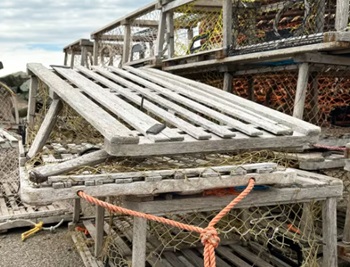 Some Mi’kmaw lobster fishermen say they’re still being prevented from earning a moderate livelihood, more than two weeks after the Department of Fisheries and Oceans began investigating allegations of trap tampering near Louisbourg, N.S. Last month, Eskasoni First Nation fisherman Charles Francis said 70 of his 178 traps were damaged. Since then, some Mi’kmaw fishermen say they have been threatened, denied fuel sales and mechanical work on their boats, and are being prevented from selling their catch by some people in or associated with the commercial fishery. “It’s pure racism,” said Michael Basque, the moderate livelihood fishery co-ordinator for Unama’ki, which is the Mi’kmaw name for Cape Breton. more, >>CLICK TO READ<< 07:50
Some Mi’kmaw lobster fishermen say they’re still being prevented from earning a moderate livelihood, more than two weeks after the Department of Fisheries and Oceans began investigating allegations of trap tampering near Louisbourg, N.S. Last month, Eskasoni First Nation fisherman Charles Francis said 70 of his 178 traps were damaged. Since then, some Mi’kmaw fishermen say they have been threatened, denied fuel sales and mechanical work on their boats, and are being prevented from selling their catch by some people in or associated with the commercial fishery. “It’s pure racism,” said Michael Basque, the moderate livelihood fishery co-ordinator for Unama’ki, which is the Mi’kmaw name for Cape Breton. more, >>CLICK TO READ<< 07:50

Nova Scotia’s Billion-Dollar Lobster Wars
At the River Café, the Michelin-recommended restaurant on the Brooklyn waterfront where the term “free-range chicken” was coined, the lobster is served butter-poached next to a pool of lemon-grape sauce, to brighten its tender brininess. The chef, Brad Steelman, insists on lobster from the cold waters of Nova Scotia, because this insures a hard shell and robust meat. Not so long ago, good lobster could be found closer to the city. Historically, there were strong harvests as far south as New Jersey. Private-equity firms and seafood conglomerates have swallowed many of North America’s fisheries. But, in Nova Scotia, most lobstermen are independent. But many inshore fishermen have also resisted a recent entrant to the power struggle: the Mi’kmaq, the most populous group of Indigenous people in Atlantic Canada. more, >>CLICK TO READ<< 06:58
Lennox Island First Nation hoping for more access to lobster fishery
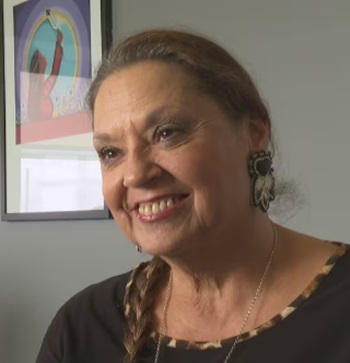 The Lennox Island First Nation wharf is busy these days, in the band’s third year of treaty fishing for lobster, but Chief Darlene Bernard would like to see it busier. Though there has been a commercial fishery based in the community off P.E.I’s North Shore for decades, Bernard said the newly exercised right to harvest lobster under treaties signed long ago means about 10 young families are better able to pay their bills. With a waiting list of about the same number of people who would like to take part in the fishery, Bernard wants to see more commercial licences made available for Lennox Island through a Department of Fisheries and Oceans (DFO) purchase program. “We need to have an equitable share of the bounty of the resources in this province moving forward,” she said. Video, photos, more, >>CLICK TO READ<< 13:20
The Lennox Island First Nation wharf is busy these days, in the band’s third year of treaty fishing for lobster, but Chief Darlene Bernard would like to see it busier. Though there has been a commercial fishery based in the community off P.E.I’s North Shore for decades, Bernard said the newly exercised right to harvest lobster under treaties signed long ago means about 10 young families are better able to pay their bills. With a waiting list of about the same number of people who would like to take part in the fishery, Bernard wants to see more commercial licences made available for Lennox Island through a Department of Fisheries and Oceans (DFO) purchase program. “We need to have an equitable share of the bounty of the resources in this province moving forward,” she said. Video, photos, more, >>CLICK TO READ<< 13:20
Cod stock reassessment prompts calls from producers to end moratorium
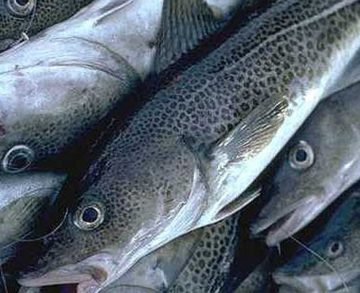 A recent reassessment of Newfoundland and Labrador’s northern cod stock has some in the industry calling an end to the commercial moratorium implemented in 1992. Alberto Wareham, president and CEO of Icewater Seafoods in Arnold’s Cove, says last year’s reassessment — the Department of Fisheries and Oceans, in reviewing historical data, moved cod from the “critical” zone to the “cautious” zone — could signal the potential for a limited commercial harvest. “We’re hoping now with more confidence in the stock we would see a reopening of a commercial cod fishery,” he said. more, >>CLICK TO READ<< 10:48
A recent reassessment of Newfoundland and Labrador’s northern cod stock has some in the industry calling an end to the commercial moratorium implemented in 1992. Alberto Wareham, president and CEO of Icewater Seafoods in Arnold’s Cove, says last year’s reassessment — the Department of Fisheries and Oceans, in reviewing historical data, moved cod from the “critical” zone to the “cautious” zone — could signal the potential for a limited commercial harvest. “We’re hoping now with more confidence in the stock we would see a reopening of a commercial cod fishery,” he said. more, >>CLICK TO READ<< 10:48
Canada opens personal-use mackerel bait fishery, extends commercial moratorium
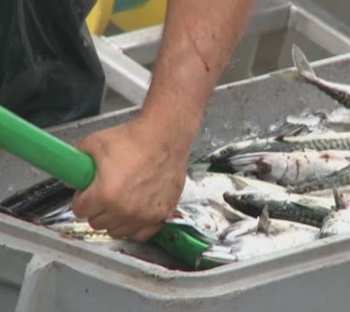 Canada is opening a personal-use bait fishery for mackerel this spring while extending the moratorium on commercial mackerel fishing in Atlantic Canada and Quebec in 2024. Fish caught under a bait licence are intended for personal-use and cannot be sold, traded or bartered. The Department of Fisheries and Oceans said in a news release Thursday the bait fishery will help licence holders supply their other fisheries, such lobster, with bait without jeopardizing the ongoing rebuilding of the stock. The 470-tonne bait quota will be released in two parts to allow fishermen in different parts of the region equitable access. Mackerel arrive in different parts of the region at different times — first off southern Nova Scotia and later in Newfoundland and Labrador. more, >>CLICK TO READ<< 14:42
Canada is opening a personal-use bait fishery for mackerel this spring while extending the moratorium on commercial mackerel fishing in Atlantic Canada and Quebec in 2024. Fish caught under a bait licence are intended for personal-use and cannot be sold, traded or bartered. The Department of Fisheries and Oceans said in a news release Thursday the bait fishery will help licence holders supply their other fisheries, such lobster, with bait without jeopardizing the ongoing rebuilding of the stock. The 470-tonne bait quota will be released in two parts to allow fishermen in different parts of the region equitable access. Mackerel arrive in different parts of the region at different times — first off southern Nova Scotia and later in Newfoundland and Labrador. more, >>CLICK TO READ<< 14:42
P.E.I. harbours face challenges with approach of lobster season
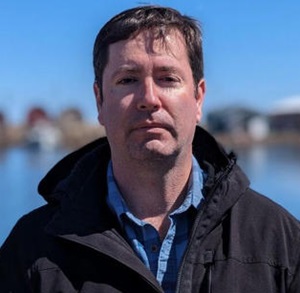 The spring lobster season on Prince Edward Island is just a few weeks away, but some harbours are facing challenges as Island fishermen prepare to head out and set their traps. At Malpeque Harbour, windy weather has slowed down efforts to clear the winding channel that they will take on setting day. “They’ve had a real hard time this year due to weather,” said fisherman Timothy Wall, who has been fishing for 30 years, following the occupation of his father and grandfather. “They’ve been on the site for two weeks already, and they can’t even get to the outside of the harbour, just the weather hasn’t been fit. Moving the harbour deeper into Malpeque Bay, where there is less moving sand, could be an option, said Wall, but there are no certain answers. Video, photos, more, >>click to read<< 11:12
The spring lobster season on Prince Edward Island is just a few weeks away, but some harbours are facing challenges as Island fishermen prepare to head out and set their traps. At Malpeque Harbour, windy weather has slowed down efforts to clear the winding channel that they will take on setting day. “They’ve had a real hard time this year due to weather,” said fisherman Timothy Wall, who has been fishing for 30 years, following the occupation of his father and grandfather. “They’ve been on the site for two weeks already, and they can’t even get to the outside of the harbour, just the weather hasn’t been fit. Moving the harbour deeper into Malpeque Bay, where there is less moving sand, could be an option, said Wall, but there are no certain answers. Video, photos, more, >>click to read<< 11:12
Mi’kmaw fishers say DFO officers left them to walk for hours at night after seizing boots, phones
 Two Mi’kmaw elver fishermen say they were forced to walk in sock feet for hours along a rural Nova Scotia highway in the middle of the night last week after they were detained by federal fisheries officers who took their boots and phones before releasing them. Blaise Sylliboy and Kevin Hartling, who assert they have a treaty right to fish for the lucrative baby eels despite this year’s season being cancelled, were joined Tuesday morning by dozens of protesters outside the Department of Fisheries and Oceans building in Dartmouth, N.S. “When we were walking, there’s times I’m like, ‘Man, if we stop, we’re going to die,’ because our feet were just soaked,” said Hartling. more, >>click to read<< 06:22
Two Mi’kmaw elver fishermen say they were forced to walk in sock feet for hours along a rural Nova Scotia highway in the middle of the night last week after they were detained by federal fisheries officers who took their boots and phones before releasing them. Blaise Sylliboy and Kevin Hartling, who assert they have a treaty right to fish for the lucrative baby eels despite this year’s season being cancelled, were joined Tuesday morning by dozens of protesters outside the Department of Fisheries and Oceans building in Dartmouth, N.S. “When we were walking, there’s times I’m like, ‘Man, if we stop, we’re going to die,’ because our feet were just soaked,” said Hartling. more, >>click to read<< 06:22






